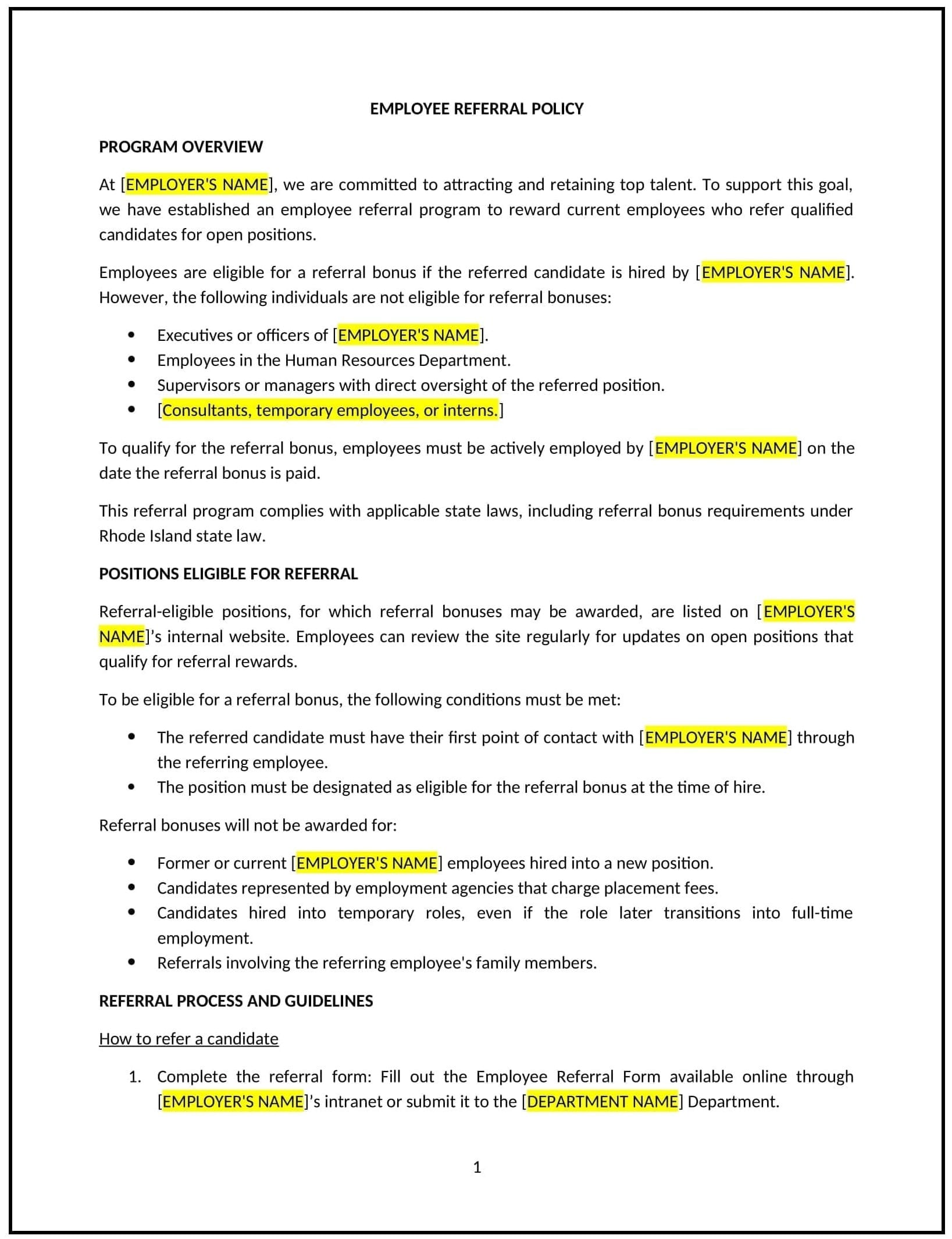Employee referral policy (Rhode Island): Free template
Got contracts to review? While you're here for policies, let Cobrief make contract review effortless—start your free review now.

Customize this template for free
Employee referral policy (Rhode Island)
This employee referral policy is designed to help Rhode Island businesses attract top talent through employee referrals. It outlines procedures for submitting referrals, eligibility criteria, and rewards for successful hires.
By adopting this policy, businesses can streamline recruitment, reduce hiring costs, and align with best practices for talent acquisition.
How to use this employee referral policy (Rhode Island)
- Define referral process: Outline steps for employees to submit referrals, including required information.
- Establish eligibility: Specify which positions are eligible for referrals and any restrictions.
- Set rewards: Describe incentives for successful referrals, such as bonuses or recognition.
- Train employees: Educate staff on the policy and its benefits.
- Review and update: Assess the policy annually to ensure it aligns with evolving business needs and recruitment goals.
Benefits of using this employee referral policy (Rhode Island)
This policy offers several advantages for Rhode Island businesses:
- Attracts top talent: Leverages employees’ networks to find qualified candidates.
- Reduces hiring costs: Lowers recruitment expenses compared to external hiring methods.
- Enhances employee engagement: Encourages employees to participate in the hiring process.
- Builds trust: Demonstrates to employees that the business values their contributions.
- Aligns with best practices: Supports adherence to talent acquisition standards.
Tips for using this employee referral policy (Rhode Island)
- Communicate the policy: Share the policy with employees and include it in the employee handbook.
- Provide training: Educate employees on how to submit referrals and the benefits of the program.
- Monitor compliance: Regularly review referral submissions to ensure adherence to the policy.
- Address issues promptly: Take corrective action if referrals are mishandled or rewards are delayed.
- Update regularly: Assess the policy annually to ensure it aligns with evolving business needs and recruitment goals.